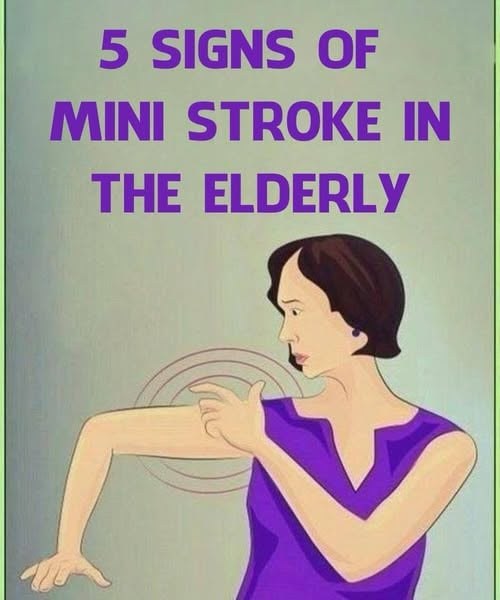Many people think that strokes just happen out of nowhere, and they’re often caught off guard when it suddenly happens. But the truth is, in some cases, your body actually shows warning signs days or even weeks before a stroke hits. Recognizing these early signals can really save your life and help prevent serious, long-term damage. So it’s important to pay attention to what your body might be telling you, even if the signs seem minor or easy to ignore.
One of the most common early signs is weakness or numbness on one side of your body. That could show up as tingling or a strange sensation in your arm, leg, face, or hand. It might feel like you’re losing control or just feeling really tired. Maybe your face feels funny or you notice that one side isn’t moving as smoothly as the other. A lot of folks brush it off — thinking it’s just fatigue, maybe a pinched nerve, or something harmless. But sometimes, it’s actually a sign that blood flow to part of your brain has been reduced, and that if not treated quickly, it could lead to a full-blown stroke.
Another big warning sign to watch for is sudden changes in vision. You might notice blurriness, double vision, or even brief episodes of vision loss in one or both eyes. Sometimes these vision problems come and go — they might last just seconds or a minute, then disappear. Because they’re temporary and kind of vague, people tend to ignore them. But they’re definitely worth taking seriously. Changes in vision like this could be an early warning from your brain that something’s not right, and it’s basically your body giving you a heads-up that a stroke could be on its way.
Severe headaches are another sign that shouldn’t be overlooked. If you wake up with a headache that feels totally different from your usual migraines or headaches — perhaps it’s extremely intense or accompanied by other symptoms — you need to pay attention. When a headache is different and comes along with nausea, neck stiffness, or sensitivity to light, it could be a signal that a stroke is starting to develop. These symptoms are often dismissed as just a bad headache, but in reality, they might be your brain’s way of warning you that something more serious is happening.
It’s hard because these symptoms can be subtle and easy to ignore or dismiss as something minor. But the key thing to remember is: if you or someone you love starts experiencing any of these warning signs — especially if they come on suddenly — you should get medical help immediately. Time is critical when it comes to strokes. The faster you act, the better the chance of preventing long-term damage or even death.
So, what should you do if you notice any of these signs? Don’t hesitate. Call emergency services right away. Do not wait to see if the symptoms pass or try to brush them off. Every minute counts. Medical professionals can give you faster treatment if they catch it early, and they might be able to save brain function and reduce permanent damage.
To sum it up, strokes aren’t always sudden and unexpected. Sometimes, your body signals that something’s wrong long before the actual event. Recognizing these early signs — weakness on one side, vision problems, severe headaches — can be the difference between life and death, between full recovery and long-term disability. So, pay close attention to your body, and never ignore symptoms that seem strange or unusual. When in doubt, always seek medical help — because catching a stroke early can truly save your life.


